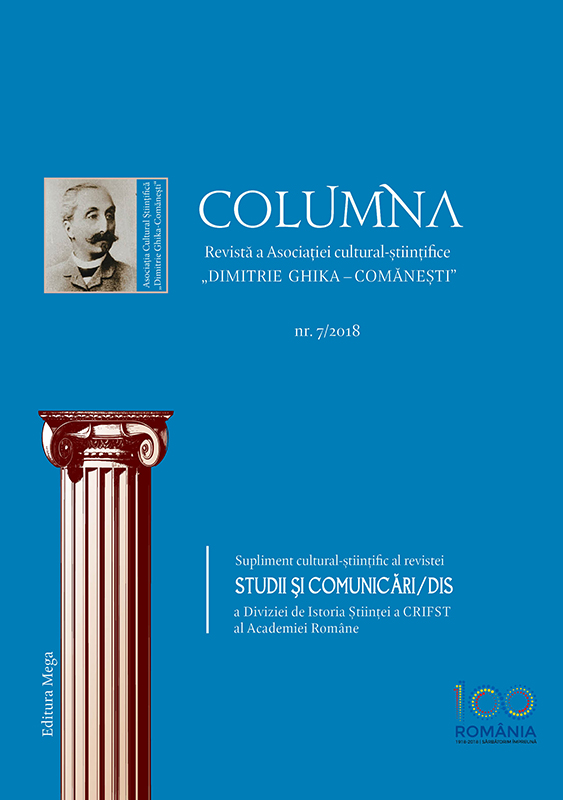Romanismul interbelic in viziunea lui Constantin Radulescu-Motru
Interwar Romanianism in the vision of Constantin Radulescu-Motru
Author(s): Edmondo-Ionut SchimbeschiSubject(s): Interwar Period (1920 - 1939)
Published by: Asociația Cultural Științifică „Dimitrie Ghika-Comănești”
Keywords: Romanianism; patriotic; principles; national culture;
Summary/Abstract: In general, Romanianism is defined as a national cultural feeling of those Romanians who consider themselves patriots, and which refers to the ethnogenesis of the Romanian people, to its Latin origin , to the continuity and permanence of the Oriental Romance speakers in the territories inhabited by them, including those temporarily under the scepter of neighboring states. This notion is opposed to nationalism. In more religious versions ethnogenesis is described in strong connection with the claim of the Romanian nation’s membership in ritualism Orthodox , from which some specific moral and spiritual. the book of Constantin Rădulescu Motru – „Romanianism – The Catechism of a New Spirituality”, Romanianism being defined as a Romanian spirit, a national feeling of the Romanians, and Catechism – Exposing the principles of Christian religion in the form of questions and answers. Constantin Rădulescu‑Motru was the personality that marked much by its multilateralism for the Romanian culture of the time when he lived through his contributions in aesthetics, pedagogy, psychology, sociology, politics, all coming from the personalist‑energetic reconstruction of man, which he considers possible and unifying all its concerns under the sign of a philosophical concept with clear capabilities to become practically operational for national culture. He was among the first to be tempted to create a “philosophy of the Romanian people”. The avenues of this approach have not destroyed the value phrases that can still be recognized by the next generations.
Journal: COLUMNA
- Issue Year: 2018
- Issue No: 7
- Page Range: 277-282
- Page Count: 6
- Language: Romanian

